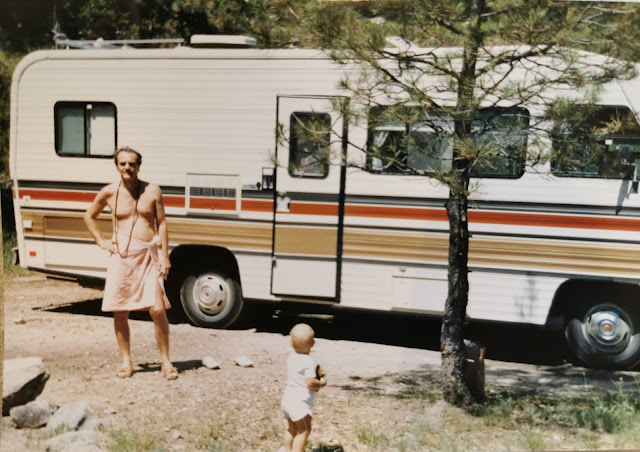To die like a dog.
In his recent announcement of the killing of the leader of ISIS, Abu Bakr al-Baghdadi, President Trump used the phrase that al-Baghdadi "died like a dog." I have never had any sympathy for ISIS, which committed numerous, often well publicized, acts of atrocities. This seems to be the tendency of the regimes based on dualistic religions - dualistic means attached to its form and being intolerant of other forms of devotion. Since the time immemorial, it seems easier for people to kill if the killing is done in the name of the God. Eliminating a leader of such a regime was probably a good thing.
However, I am somewhat concerned about Mr. Trump's choice of words. Alleging that al-Baghdadi "died like a dog," in a cowardly manner, was meant perhaps to break the will to fight of ISIS followers. It also somewhat dehumanizes the whole act - implies, by association, that a-Baghdadi was a dog, and killing a dog is not as serious as killing a human being. But was this choice of words really necessary?
One could argue, and perhaps ISIS fighters will use this narrative, that al-Baghdadi died in courageous way, blowing himself up rather than allowing himself to be caught and humiliated through some sort of trials. Pity, he also took the lives of, what was believed, his three children. I wish adults were not making this kind of decision for the innocent ones.
There is also a phrase in Polish - "to die like a dog under a fence." ("Umrzeć jak pies pod płotem.") This is a metaphor for a particularly painful way of dying - in loneliness, with total indifference of the world. This is the kind of death one would not wish on his worst enemies. However, this is definite possibility for so many people, especially those spending their last years in the "old folks facilities."
Back, in the old country, it was not unusual that three, or even four, generations lived under one roof. This was giving the grandparents a function - to take care of grand-children, to serve as elders, disseminating wisdom, based on experience, to the younger ones. As a result of this arrangement, not necessary perfect or always comfortable, old people were dying surrounded by their families. If one feels loved, when it comes to departure, it is believed, the whole ordeal is easier to go through.
In what was referred to by Gombrowicz as "son-land," old folks are often sent to all kind of "supportive living" facilities. Some of them can really be nice, and, if one is lucky enough, he/she may encounter supportive roommates and staff. However, many appear to be, what Leonard Orr called, "houses of death" - places where one waits for the end of the body, being alienated from the whole world. This scenario may not be much better than "dying under a fence."
Naturally, there is also the way of Nisargadatta, who maintained that we were not our bodies. Consequently, it was not that important that one's body should live long. The only important matter, Nisargadatta used to say, is if one realizes his/her true, divine nature. Still, I think, I would prefer to accomplish this being surrounded by loving family and friends. And, I would not wish for myself, or anyone, the violent death of al-Baghdadi and countless victims of his regime.
However, I am somewhat concerned about Mr. Trump's choice of words. Alleging that al-Baghdadi "died like a dog," in a cowardly manner, was meant perhaps to break the will to fight of ISIS followers. It also somewhat dehumanizes the whole act - implies, by association, that a-Baghdadi was a dog, and killing a dog is not as serious as killing a human being. But was this choice of words really necessary?
One could argue, and perhaps ISIS fighters will use this narrative, that al-Baghdadi died in courageous way, blowing himself up rather than allowing himself to be caught and humiliated through some sort of trials. Pity, he also took the lives of, what was believed, his three children. I wish adults were not making this kind of decision for the innocent ones.
There is also a phrase in Polish - "to die like a dog under a fence." ("Umrzeć jak pies pod płotem.") This is a metaphor for a particularly painful way of dying - in loneliness, with total indifference of the world. This is the kind of death one would not wish on his worst enemies. However, this is definite possibility for so many people, especially those spending their last years in the "old folks facilities."
Back, in the old country, it was not unusual that three, or even four, generations lived under one roof. This was giving the grandparents a function - to take care of grand-children, to serve as elders, disseminating wisdom, based on experience, to the younger ones. As a result of this arrangement, not necessary perfect or always comfortable, old people were dying surrounded by their families. If one feels loved, when it comes to departure, it is believed, the whole ordeal is easier to go through.
In what was referred to by Gombrowicz as "son-land," old folks are often sent to all kind of "supportive living" facilities. Some of them can really be nice, and, if one is lucky enough, he/she may encounter supportive roommates and staff. However, many appear to be, what Leonard Orr called, "houses of death" - places where one waits for the end of the body, being alienated from the whole world. This scenario may not be much better than "dying under a fence."
Naturally, there is also the way of Nisargadatta, who maintained that we were not our bodies. Consequently, it was not that important that one's body should live long. The only important matter, Nisargadatta used to say, is if one realizes his/her true, divine nature. Still, I think, I would prefer to accomplish this being surrounded by loving family and friends. And, I would not wish for myself, or anyone, the violent death of al-Baghdadi and countless victims of his regime.




Comments
Post a Comment